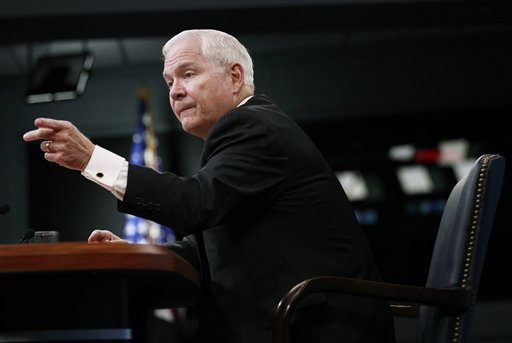
When Defense Secretary Robert Gates announced big Pentagon spending cuts on Monday, he indicated the move was an effort to squelch growing calls for cutting the bloated military budget.
An indication of the cut-military-spending mood on Capitol Hill came just two weeks ago, when a record 102 Democrats, more than a third of the 255 Democrats in the House, voted against the president’s $33 billion supplemental Afghanistan war funding bill, compared to 32 who opposed a similar bill last year.
House Appropriations Committee Chair David Obey, D-Wis., expressed the mounting concern that the needs of Americans in economic hard times are being sacrificed to military spending. Before casting his vote July 27 against the new war funding, Obey said, “We have appropriated over $1 trillion for the wars in Iraq and Afghanistan to date. … These wars have been paid for with borrowed money. But … virtually everything we have attempted to do this year to address the economic crisis and emergencies on the domestic side of the ledger have fallen by the wayside.”
On Monday Gates announced initial cuts in Defense Department management, personnel and programs that are expected to total about $100 billion over the next five years. The cuts include a significant reduction in private contractors, which mushroomed under the Bush administration. But Gates made it clear that he was not aiming to cut the Pentagon’s overall budget. Instead, the cuts he is making are intended to free up money for war.
In June, Gates ordered the military and civilian Pentagon bureaucracy to “find tens of billions of dollars in annual savings to pay for war-fighting operations,” The New York Times reported. The goal, according to the Times, is to guarantee 3 percent real growth each year in funding for combat operations. “Each dollar in spending cuts found by a military department would be reinvested in the combat force of that branch,” the Times reported.
The Obama administration has asked Congress to increase defense spending next year from $535 billion to $549 billion, not counting the cost of the Iraq and Afghanistan wars. It is less than the growth under Bush, when the Pentagon budget grew by a whopping 36 percent in inflation-adjusted dollars, not counting Iraq and Afghanistan.
Defense officials characterized Monday’s cuts “as a political preemptive strike to fend off growing sentiment elsewhere in Washington to tackle the federal government’s soaring deficits by making deep cuts in military spending,” according to the Washington Post.
But the moves by Gates may not stem the calls for a major change in U.S. spending priorities.
In a panel on national security at the progressive America’s Future Now conference in June, Minnesota Rep. Keith Ellison cited the crushing financial burden of defense spending. He said change can begin with the “low-hanging fruit” – cutting waste from the Pentagon budget, as Gates is proposing – but much more is needed. Ellison, a member of the Congressional Progressive Caucus, called for a profound “reordering, reprioritization” of U.S. foreign policy spending, away from military power.
At the annual conference of the National Organization for Women last month in Boston, speakers at a packed workshop on equal pay and retirement security made the point that Social Security funds have been lent to the Pentagon in Treasury bonds to finance “two unfunded wars” – Iraq and Afghanistan. “The money is there” to cover Social Security benefits fully, Ashley Carson of the Older Women’s League emphasized. “The U.S. is responsible to pay back those bonds.” Spending on the wars, she said, is one of the key causes of the federal deficit.
Predictably the proposed cuts were attacked by Republicans, ever eager to wave the flag of militarism. But the cuts also drew criticism from Democratic members of Congress in places like Virginia, where jobs depend heavily on military bases and contractors. Yet many experts point out that military spending produces fewer benefits for the economy, including job-creation, than civilian spending in areas like education, health, transportation and green construction.
They point to the potential, and need, for a bigger and broader “green jobs, not war jobs” movement.
Photo: Secretary of Defense Robert Gates announces Pentagon cuts, Aug. 9, in Washington. (AP/Manuel Balce Ceneta)












Comments